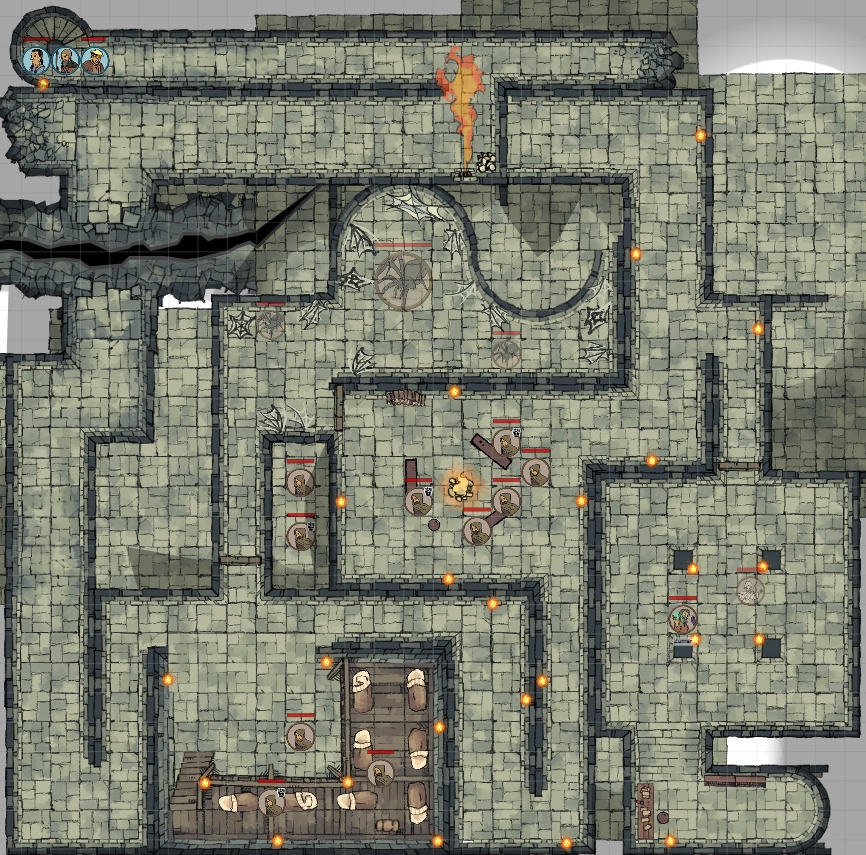 |
| The Berenn Ruins |
Alexa Alinburg's player got a new job with a new timetable so unfortunately had to bow out. We were down to three for the time being:
Ceasar Giovana (lvl 1 monk)
A local mischia player (mischia being a highly bloody and highly popular contact sport).
Salazar Caltata (lvl 1 rogue)
The fourth son of a local nobleman. A scrawny creep with a knack for blending into a crowd.
Vero Anzano (ranger)
An old huntsman. Nobody really knows much about him apart from the game he brings back from the woods.
One week on, our heroes found themselves summoned to a private audience with Actaeon and Petronius, the slugfolk envoys, and the town governor. With the exception of Alexa, who had disappeared, they decided to answer the summons. After listening to the trio's report on the goings on the week before, the slugfolk mentioned the name of a wanted man: Zumar Argatzu. Salazar mentioned his awareness of the fugitive's existence, and our heroes were charged with locating and apprehending the individual.
Following a tip from Zoriane, the trio made their way towards the Berenn Ruins, a derelict watchtower a day's trek away. Vero knew of a tunnel leading to the base of the watchtower, through which our heroes journeyed as dusk fell. This brought them to a stairwell into the pitch black of the watchtower's underground quarters. Venturing forth, the came across a statue with an outstretched hand. After triggering a gout of fire from a vent in the wall by turning the hand the wrong way, the shaken but unhurt trio turned it the other way to reveal a passage in the wall next to them.
Creeping along a lit corridor, they darted towards a door off the side to avoid a group of hooded figures sat around a fire. In doing so they came across Zumar himself bent over a pile of paper and leather. As Ceasar sprang upon him, the wild-eyed Zumar muttered a word and the pile formed into the shape of a human warrior. As Ceasar and Vero battled the construct, Salazar forced a sleeping draught down Zumar's throat before joining in against the paper/leather creation. They brought it down though Vero was taken out in the process. They stabilised him and bound Zumar. As Ceasar pondered how to carry everyone and everything out, Salazar proceeded to collect all of Zumar's papers and two books from the shelves: 'The Grievances and Dramas of the Ruling Families of the Lands of Etalia' and 'Patrons and Complications'.
On the way out Ceasar, laden down under both bodies and the construct's blade, struggled on and cursed a bit too loudly, and one of the hooded figures came over to have a look. Salazar quickly impersonated a member of the group and distracted the investigator with a demand to be led to the nearest latrine while Ceasar moved the two inert forms. As soon as Salazar was able to rejoin him, Ceasar revived Vero and together our heroes fled back out along the tunnel with Zumar in tow and emerged into the cool night air.
Afterthoughts
Timing-wise I was quietly pleased how this session panned out pacing-wise - a bit of social roleplay, a trek and a dungeon, all fitting into a two and a half hour evening's play without feeling rushed.
This was also my first attempt at a custom dungeon which was fun to come up with, and I liked the visual treat provided by the 2-Minute Maps tiles, but it was all rather labour intensive - I simply don't have the time to be investing so much into what is after all a very small dungeon. Instead I invested just as much time into redrawing a player's map of the Tomb of the Serpent Kings which, while significantly larger, did feel a little like reinventing the wheel. At least I got to use it the next session.











